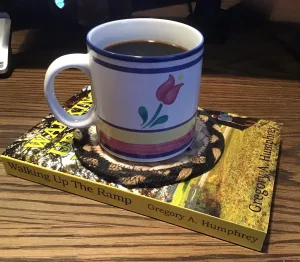Every year on May 3, UNESCO commemorates World Press Freedom Day. This year I need not write, given the almost hourly headlines, the day was marked by the dire and grave threats to journalists where the war on Gaza is becoming the deadliest conflict for journalists and media workers in recent memory. Journalism is delivered by reporters and news photographers to a world that needs a better understanding of the events that impact their lives. It is, again I need not write, a most valued profession.
As CBS News reported, the war on Gaza is the deadliest ever to be recorded by the CPJ since the nonprofit began to collect data in 1992. For comparison, the number of journalists killed in the first two months in Gaza surpassed the amount killed in the Vietnam War, which lasted two decades, according to the IFJ. According to CPJ, Four Israeli journalists were killed, three by Hamas during their attack on Oct. 7. Three Lebanese journalists were killed by Israeli airstrikes or shelling. 102 Palestinian journalists were also killed by airstrikes, shelling, or snipers, according to IFJ.
Think of a reporter as a pair of eyes and ears to the larger world and then think of losing those senses. That is what happens each time a reporter is killed. This past week, the BBC reported on the importance of this annual event and spoke about one of the reporters who worked as an Al Jazeera cameraman. He was killed last year. When back on my computer I did a Google search and located more information about Samer Abudaqa who was hit in an Israeli drone attack while reporting at Farhana school in Khan Younis, located in southern Gaza. He bled to death for more than four hours as emergency workers were unable to reach him because the Israeli army would not let them. Given the destruction of every hospital in Gaza, one does have to ask where he would have received vital medical attention even if humanity was allowed among the Israeli soldiers to take hold?
While researching more information about Abudaqa I came across a joined story, also from CBS News.
CPJ has tracked numerous forms of censorship: attacks, threats, assaults, and arrests of journalists covering the war in Gaza. Journalists have had family members killed. One of those is Al-Jazeera’s Wael Al-Dahdouh. In November, he received the call while on air that his wife, children, and grandson were killed after they relocated to an area they were told was safe.
At the center of why journalists play such an important role is the importance for people to know about the workings of their government, and as the college campus protests have pointed out, what is being done with the people’s money. The need for press freedom is so great, and yet the attempts by some governments to curtail the work of journalists are egregious.
It is no surprise that this annual observance, and what it represents matters to us all since it is a foundational fact that journalists do the valued work for those who live in a democracy, or where people strive for more freedoms. For journalists working in places where rights are fewer this past week was a reminder to those governments that they must be aware that the rest of the world is watching. May 3rd was a day about recognizing the universal truth–whether or not it is applied in practice in each nation–that there must be a commitment to press freedom.
Al-Dahdouh was covering the news live when his son was killed by an Israeli bomb. The blast was heard by viewers and listeners. Later that day, he was back on the air reporting. That is the sign of professional steadfastness we call attention to on World Press Freedom Day.


